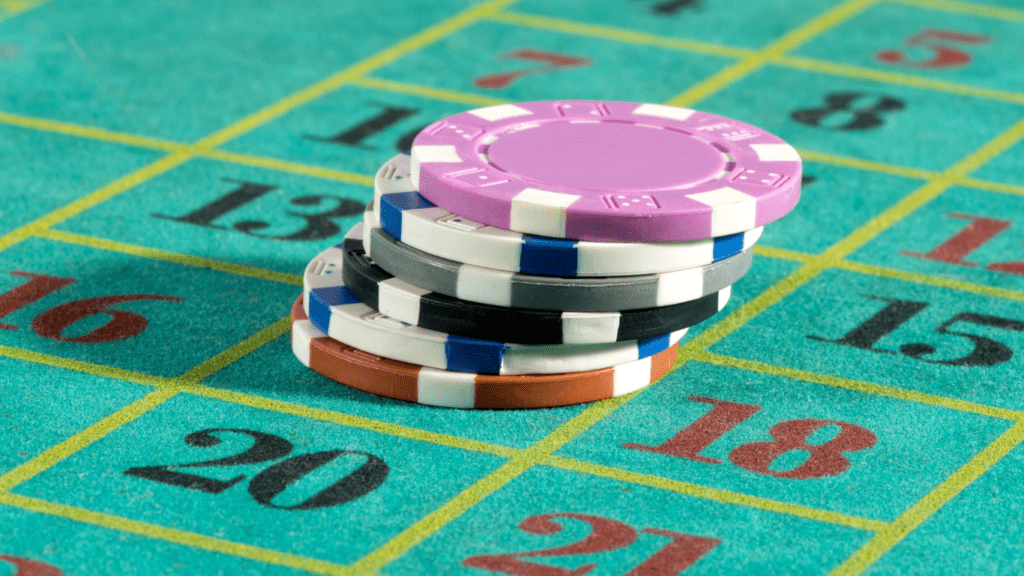Understanding Your Gambling Goals
Assessing your reasons for gambling helps shape your strategy. People gamble for various purposes, including entertainment, socializing, and trying to win money. Identifying your primary motive influences your approach.
Entertainment
If you gamble for fun, focus on games with engaging formats. Games like slots, keno, and bingo offer simple rules and enjoyable experiences. Casual settings can enhance relaxation.
Socializing
For those who gamble to stay social, prefer multiplayer games. Poker, blackjack, and baccarat encourage interaction. Look for online platforms or local casinos hosting live games.
Profits
When prioritizing profits, prioritize skill-based games. Poker and sports betting rely heavily on strategy and knowledge. Develop expertise and continually refine your techniques to improve outcomes.
Risk Tolerance
Understanding your gambling goals includes evaluating your risk tolerance. High-risk games like roulette and high-stake poker suit thrill-seekers. Conversely, low-risk games like slots ensure minimal losses. Your risk appetite affects the type of games you should consider.
Types Of Gambling Strategies

Choosing the right gambling strategy means understanding different approaches and identifying what fits your style best. Here, I’ll break down basic and advanced strategies to guide your choice.
Basic Strategies
Basic strategies offer a straightforward approach to gambling. They suit beginners or those preferring simplicity.
- Flat Betting: This involves betting the same amount each time, minimizing risk since losses are predictable.
- Martingale System: If you double your bet after every loss, eventually, a win recovers previous losses plus a profit equal to the original stake. This suits those willing to risk larger funds.
- Paroli System: By doubling your bet after a win and resetting after a loss, you capitalize on winning streaks. This is less risky than the Martingale System as it limits potential losses.
Advanced Strategies
Advanced strategies require a deeper understanding of games and higher risk tolerance. They’re better for experienced gamblers aiming for substantial profits.
- Card Counting (Blackjack): By tracking high and low cards, you can adjust your bets and playing strategies. This method is complex and often restricted in casinos.
- Kelly Criterion: This mathematically-driven strategy determines the optimal size of bets based on the probability of winning. It helps maximize growth over time and minimizes risk.
- Hedge Betting: This involves placing bets on different outcomes to secure a profit regardless of the result. Often used in sports betting, it requires substantial knowledge of odds and outcomes.
Understanding these strategies helps align your gambling approach with your goals and risk tolerance.
Evaluating Your Risk Tolerance
It’s crucial to assess your risk tolerance when choosing a gambling strategy. Understanding your comfort level with risk helps in aligning your strategy with your goals and preferences.
High-Risk Strategies
High-risk strategies can yield substantial returns but come with greater potential for losses. For instance, the Martingale System involves doubling your bet after each loss, aiming to recover all losses when you win. Card Counting in blackjack requires skill and precision, offering high rewards but risking being banned from casinos. Hedge Betting involves placing multiple bets on different outcomes of the same event, which can be costly if not executed perfectly.
Low-Risk Strategies
Low-risk strategies prioritize minimizing losses over maximizing gains. Flat Betting, where you place the same amount on each bet, helps in managing your bankroll more conservatively. The Paroli System, a positive progression strategy, involves increasing your bet after each win and resetting after three wins, limiting potential losses. The Kelly Criterion, which calculates the optimal size of bets based on odds and bankroll size, provides a mathematically sound approach to betting without excessive risk.
Evaluating your risk tolerance helps in selecting strategies that suit your financial situation and emotional comfort.
Bankroll Management
Effective bankroll management is critical for anyone serious about gambling. I use it to ensure consistent play and avoid substantial losses.
Setting Budget Limits
Setting budget limits involves deciding on a specific amount to dedicate to gambling activities. I allocate an amount I can afford to lose, ensuring other financial responsibilities remain unaffected. This practice helps avoid overspending and maintains financial balance. For instance, if I decide to allocate $500 per month, I stick to that limit regardless of wins or losses.
Tracking Wins and Losses
Tracking wins and losses is essential for monitoring gambling performance. I record each session, noting the amount wagered and the outcome. This practice helps identify patterns and adjust strategies accordingly. For example, if I notice losses are higher on specific days or games, I can modify my approach to mitigate future risks. Using tools like spreadsheets or gambling apps simplifies this process and offers a clearer picture of overall performance.
The Role Of Skill And Luck
In gambling, skill and luck both play significant roles. Selecting the right strategy involves understanding how these factors impact game outcomes.
Skill-Based Strategies
Skill-based strategies rely on a player’s expertise. These strategies include card counting in blackjack, poker tactics, and sports betting analytics. With card counting, for example, players track the ratio of high to low cards to gain an advantage. In poker, knowledge of hand rankings and bluffing enhances decision-making. Sports betting requires analyzing team statistics, player performance, and other variables to make informed bets. Mastering these strategies takes practice and study but offers greater control over outcomes.
Luck-Based Strategies
Luck-based strategies depend more on chance than skill. Examples include games like slot machines, roulette, and lotteries. In slot machines, outcomes are determined by random number generators, making each spin independent of the previous one. Roulette relies on the random landing of a ball on the wheel. Lotteries involve drawing numbers without any influence from the player’s actions. While skill doesn’t significantly impact these games, managing one’s bankroll and setting limits can help control losses and extend playtime.
Finding Resources And Tools
Choosing the right gambling strategy involves leveraging various resources and tools to enhance your game. Accessing high-quality information and connecting with experienced gamblers can make a big difference in your success.
Books And Courses
Books and courses offer in-depth knowledge and structured learning paths. Classic books like “Beat the Dealer” by Edward Thorp have revolutionized card counting in blackjack. “Poker for Dummies” provides a comprehensive guide for new players. Online courses, often available on platforms like Udemy and Coursera, offer video lectures and interactive content on topics ranging from basic poker strategies to advanced sports betting analytics.
Online Tools And Forums
Online tools and forums can provide real-time insights and community support. Tools like poker odds calculators, betting trackers, and simulation software help refine strategies and improve decision-making. Forums like Two Plus Two and Reddit’s r/sportsbook offer a platform to discuss tactics, share experiences, and receive feedback from seasoned gamblers. Engaging with these communities can provide diverse perspectives and up-to-date information, facilitating continuous learning and strategy enhancement.


 Gary Coxtersons brought his technical expertise to the development of Hype Gamble Match, ensuring the platform’s robust functionality and smooth operation. With a deep understanding of web development and platform integration, Gary was pivotal in building the backend systems that allow for real-time updates and a seamless user experience. His contributions have made it possible for users to access the latest betting odds, insights, and strategies effortlessly, supporting the overall success of the platform.
Gary Coxtersons brought his technical expertise to the development of Hype Gamble Match, ensuring the platform’s robust functionality and smooth operation. With a deep understanding of web development and platform integration, Gary was pivotal in building the backend systems that allow for real-time updates and a seamless user experience. His contributions have made it possible for users to access the latest betting odds, insights, and strategies effortlessly, supporting the overall success of the platform.